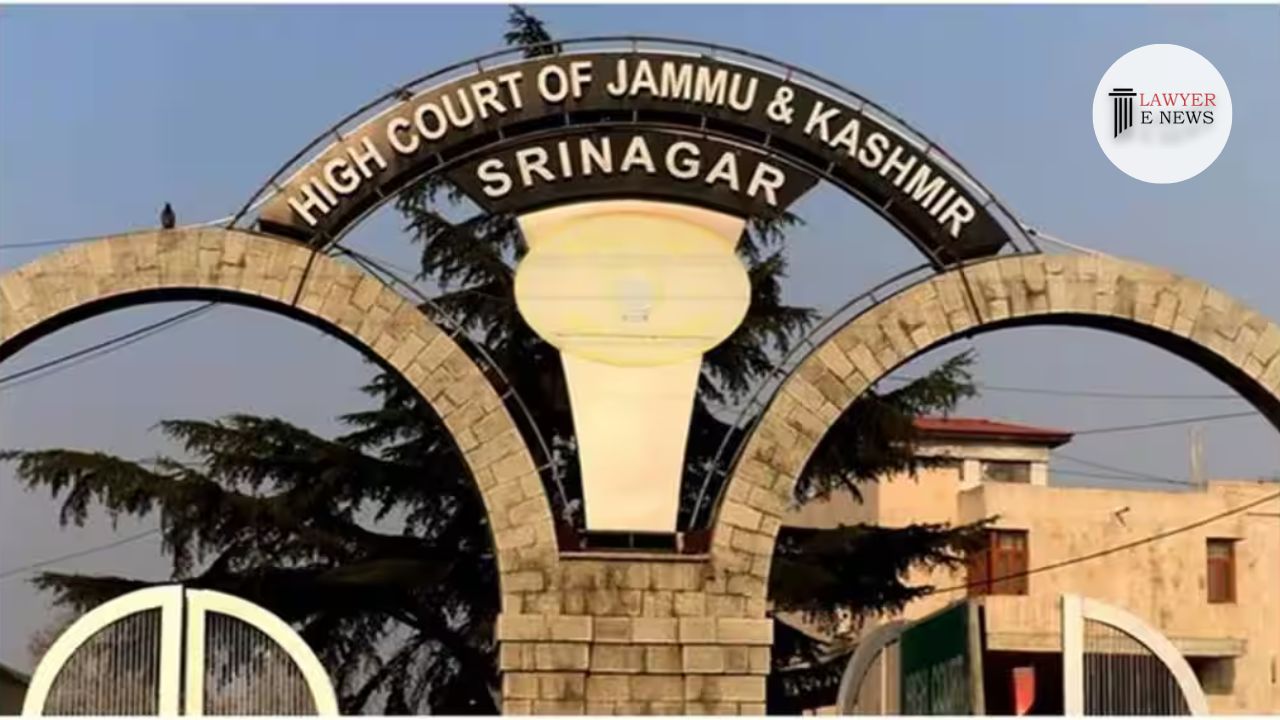-
by Admin
15 February 2026 5:35 AM



The High Court of Jammu & Kashmir and Ladakh at Jammu has dismissed a petition challenging an interim injunction, criticizing the petitioner for not approaching the court with clean hands. The judgment, delivered by Justice Wasim Sadiq Nargal, upheld the appellate court's decision and emphasized the necessity of transparency and integrity in judicial proceedings. The petitioner, Gulshan Kumar, was ordered to pay costs for his misconduct.
Gulshan Kumar, the petitioner, challenged an order from the Principal Sessions Judge, Jammu, dated March 30, 2024, which overturned a status quo order by the Sub Judge (Chief Judicial Magistrate) Jammu. Kumar sought the restoration of the order dated January 2, 2024, which directed parties to maintain status quo regarding his service status as Managing Director of Jammu Tehsil Cooperative Marketing Society Ltd. Kumar's service tenure had ended on July 15, 2020, yet he claimed the right to continue based on a resolution dated July 16, 2020. Notably, Kumar did not include Harsh Vardhan Singh, the Chairman of the Cooperative Society, as a party in his initial suit, which led to the ex parte status quo order.
Petitioner's Misconduct: The court noted that Kumar had deliberately omitted a necessary party, Harsh Vardhan Singh, from the initial suit to obtain an interim order. Justice Nargal highlighted, "The petitioner has not approached the trial court with clean hands and by way of misrepresentation and playing fraud on the court has got the interim direction."
Filing of Caveat: Kumar had filed a caveat against Singh before the appellate court, which contradicted his claim that Singh was not a necessary party. This act was deemed by the court as an admission that Singh was indeed a crucial party to the proceedings.
Superannuation and Service Extension: Kumar’s claim to continue as Managing Director despite his retirement was also scrutinized. The court reiterated that in accordance with SRO 233, employees of Cooperative Societies are to retire at 58 years, a rule upheld in previous judgments and governmental circulars. "The employees of the Cooperative Societies cannot seek parity in their service condition with the service conditions of the government employees unless approved by the Government," the court noted, referencing the decision in Mohd Maqbool Bhat & Ors. v. UT of J&K.
The court emphasized the principles of transparency and the need to maintain integrity in judicial processes. Justice Nargal observed, "Technicalities should never be permitted to override substantial justice." The court found that Singh had the right to appeal as an aggrieved party and that the appeal was filed within the limitation period from the date of knowledge of the trial court’s order.
Justice Nargal remarked, "A person who was already terminated from service cannot seek an injunction against the termination which has already happened, and after having accepted the said order for four long years, it is legally impermissible to question it at a belated stage."
The High Court’s dismissal of the petition highlights the judiciary’s intolerance for deceptive practices and underscores the importance of procedural propriety and honesty in legal proceedings. By imposing costs on the petitioner, the court has sent a strong message against the misuse of judicial processes. This judgment serves as a crucial precedent in reinforcing the legal framework governing service conditions in Cooperative Societies.
Date of Decision: May 7, 2024
Gulshan Kumar vs. U.T. of Jammu & Kashmir & Ors.
